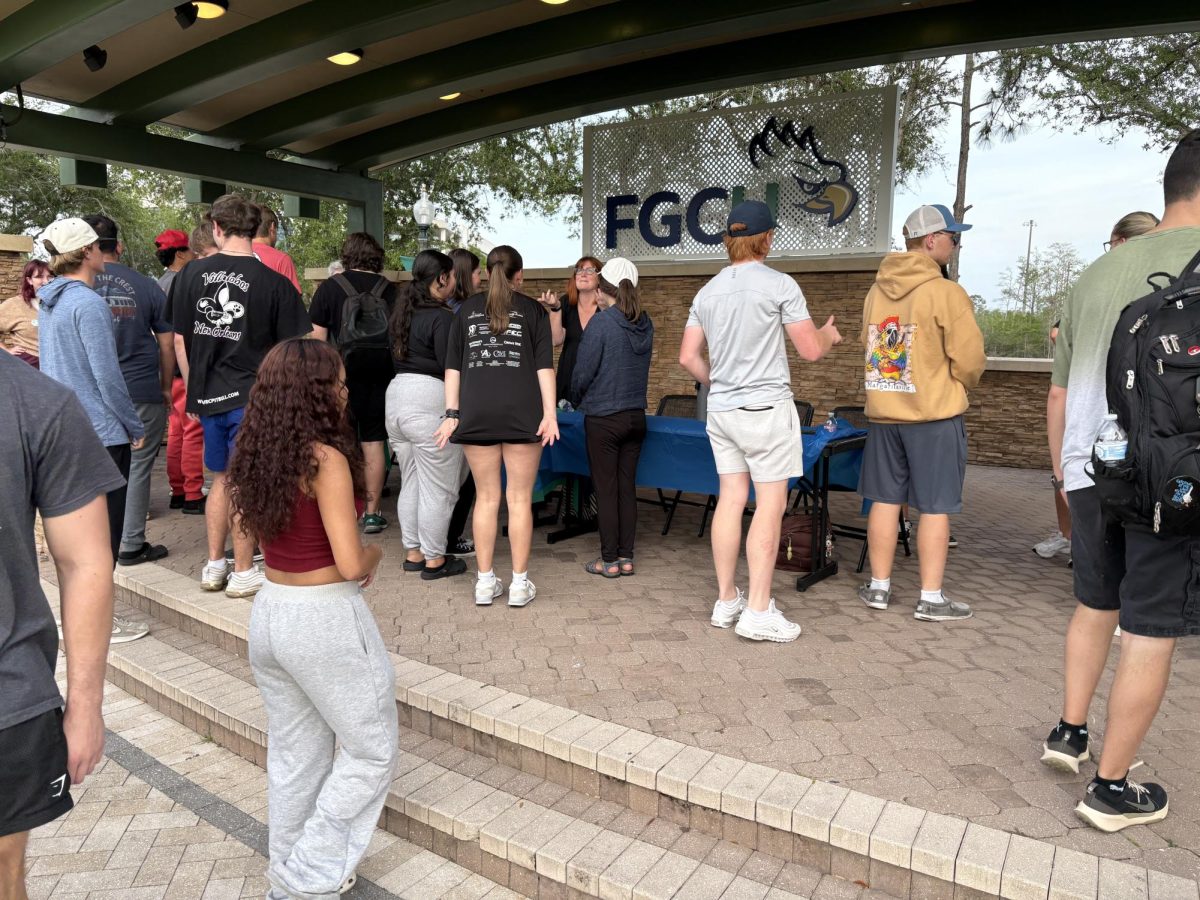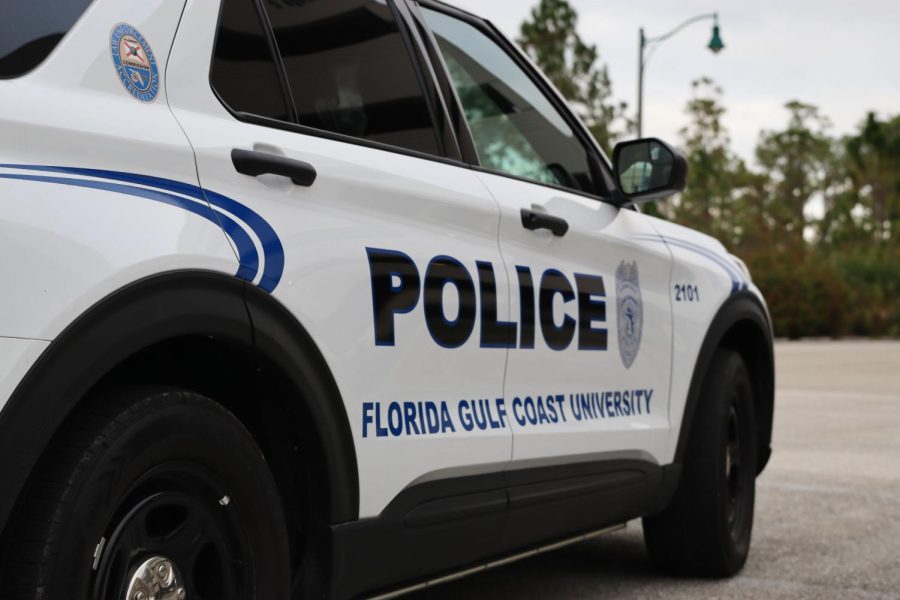In Case of Emergency: FGCU’s Emergency Protocols
May 25, 2023
UPD plays an important role in the preparations that the university makes in case of an emergency. In light of recent school shootings in the U.S., the university wants students, faculty and staff to be aware of the protocols they have in place in case of an incident.
University police are responsible for law enforcement, security, disaster planning and emergency response at FGCU.
UPD’s Chief of Police James Slapp has been with the university since March of 2008 and became the chief of police last April. Throughout his time here, he has made it a priority to create an open line of communication between the department and students. The department has 22 sworn law enforcement officers and 13 civilian personnel.
“We want to make it as easy as possible for the students to get information,” Slapp said.
UPD’s website defines an active assailant as an individual actively engaged in killing or attempting to kill people in a confined or populated area. Slapp said it’s important for everyone to know the resources that FGCU has in place for an incident like this.
The department utilizes a resource called the guardian eagle app. UPD encourages everyone to download it as it’s the easiest way to get a hold of the department. The app allows someone to call 911 or UPD, send a tip and chat with the department.
With some of the code blue poles being out of order, Slapp said that this app is even better than the poles. Although the poles are important, once you activate your location and make contact with UPD, they are able to track your location as you move. With the poles, UPD is only able to track the location of the pole that you touched, not your location itself.
They also utilize a notification system called the Rave alert system. This is an opt-out program, so all students, faculty and staff are automatically signed up for emergency notifications from UPD.
On Jan. 23, UPD detained three male subjects that were suspected to have firearms in FGCU’s South Village residence halls. The department utilized the alert system to update students on the whereabouts of the individuals and what steps UPD was taking at the moment.
Once the suspects were detained, it was realized that they had pellet guns in the shape of AR-style automatic rifles.
“It almost worked out as an exercise for us to practice all of our systems and to find out they were actually working very well,” Slapp said. “And it was very good to see so many people calling in and reporting things immediately because that’s what you need to do.”
However, students that lived on campus were unsure what to do.
Students that live on campus are instructed to shelter in place, keep their doors locked and barricade their front doors. This information can also be found on UPD’s website.
The university also requires all new students, faculty and staff to take a Canvas course. This course entails information on how to react to extreme incidents and various security and safety resources that FGCU offers. Students have a hold on their account, meaning they cannot register for classes until they complete it.
Slapp said that it’s challenging to hold active assailant drills because the scenarios could be very different. If there’s something happening on main campus, UPD would lock down campus and everyone would be instructed to shelter in place. However, if it were to happen in housing, it would be a very different scenario.
“I don’t know too many universities that actually do active assailant drills because they’re actually very different from a fire drill and it depends heavily on the situation itself,” Slapp said.
The department does a lot of internal training to prepare for something like this. They also train with local law enforcement. Every few years they execute an exercise that acts like a real incident. They involve local agencies like emergency medical services, the fire department, the port authority and the Lee County Sheriff’s Department to run through drills on campus.
UPD also has interlocal agreements with law enforcement agencies if they are in need of resources.
“Obviously, with us being a small department, we have the entire Lee County Sheriff’s Department, FBI Joint Terrorism Task Force and the county port authority all ready to help us as soon as we need it,” Slapp said.
Slapp recommends checking out UPD’s website and the university’s emergency management website to learn more about the university’s emergency protocols.
UPD’s website has resources from the U.S. Department of Homeland Security including a document on how to respond to an active assailant and a link to their website on how to prepare, survive during and be safe after the event.
The emergency management page has information on FGCU’s notification systems, campus police, emergency response guides, university training, continuity of operations and personal preparedness.
“The emergency management website will explain how to seek out additional information and also explain how to use the various types of emergency notification systems as well as how to download the app,” Slapp said.
Slapp said that it’s important for students to be aware of the preparations that FGCU has in place for an active assailant incident and encourages students, faculty and staff to educate themselves on what they would need to do in case of emergency.





























